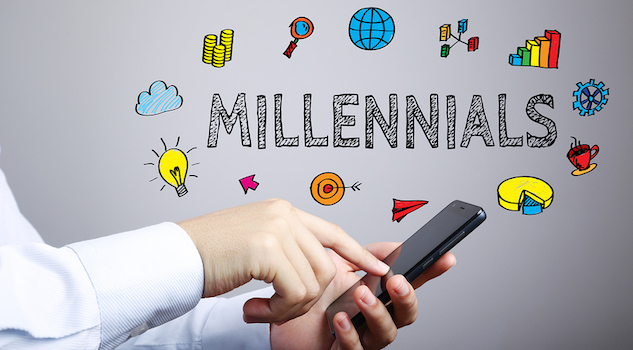Millennials aren’t shy of being disruptive, so it’s no surprise this generation has brought about a whole new meaning to work. Specifically, introducing certain shifts and preferences that have influenced the way work is approached and perceived.
For millennials, the purpose of work goes beyond merely earning a paycheck or climbing corporate ladders. While these traditional views and norms still exist, they’re no longer being viewed as “the only way”. In fact, for many millennials, these approaches have become outdated.
The values and priorities of millennials mean this workforce see things differently. Work – the ‘what’, ‘why’, ‘how’ and its very role in their lives – are, therefore, going to be different. There are a multitude of workplaces who are continuing to experience issues with their younger workforce – and unless being led or managed by millennial leaders who may “get it” when it comes to wants and needs – then risks remain.
Key for workplaces to understand is first, the majority workforce is millennial. Ask, listen, and accommodate are a must if you want to get the best out of them. Second, understanding the purpose of work through their lens – those key aspects that millennials emphasize – is critical to safeguard engagement, retention and recruiting talent.
Millennials value work that provides a sense of purpose and fulfilment. They want jobs or roles that align with their personal values and allow them to make a positive impact on society or contribute to a greater cause. Linked to this, is the role of their workplace when it comes to social impact and corporate responsibility. Millennials are passionate about social and environmental issues – sustainability, inclusivity, and ethical practices matter.
Millennials seek flexibility in their work arrangements; while the term work-life balance is often used, it’s more about work-life integration. This workforce values being able to pursue personal interests, spend time with friends/family, and maintain their physical and mental well-being. This flexibility also stems to technology. Growing up in a digitally connected world, millennials value the role of technology and the freedom and autonomy it provides.
Millennials are committed to personal development and continuous learning – which means they seek opportunities for skill development, knowledge, and experiences. Career progression, professional development and a supportive work environment that can make that happen matter.
Millennials prioritise work environments that provide and promote a positive work culture; inclusive and diverse workplaces that foster a sense of belonging and are focused on employee wellbeing. This also ties in closely with their want for collaboration and a sense of belonging. Millennials appreciate collaborative work environments that foster teamwork and open communication. They value opportunities to work with diverse teams, share ideas, and collectively solve problems.
Oftentimes, workplaces face resistance from senior leaders who still hold misperceptions about this generation or feel that changing might be “pandering”. This isn’t the case. Put simply, the millennial workforce represents a shift in values and expectations that offer huge benefits. This awareness and listening aren’t a weakness; it’s a strength. Part of mitigating the ongoing challenges that workplaces experience, and futureproofing success for the long term.










![I’m sick of entitled millennials who [fill in the blank]](https://insidesmallbusiness.com.au/wp-content/uploads/2021/04/How-to-keep-your-millennial-employees-engaged-200x150.jpg)


